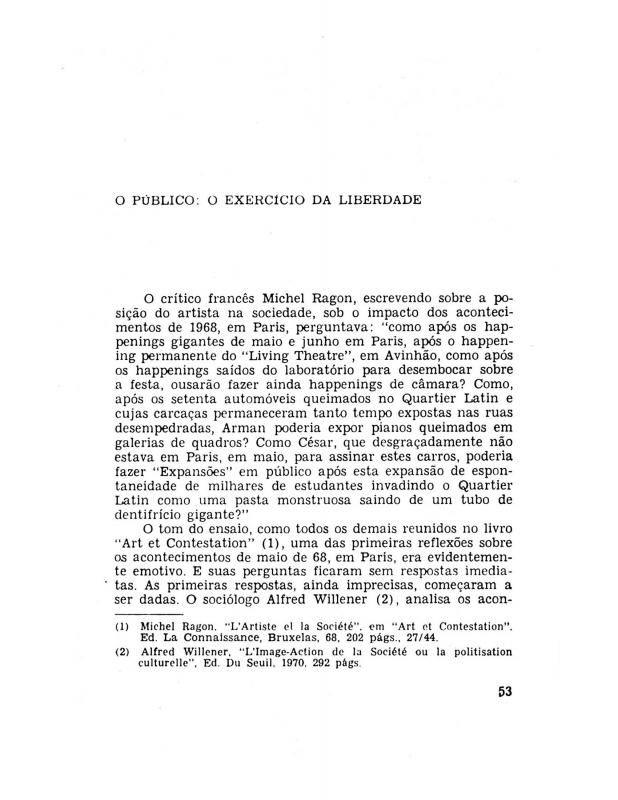Frederico de Morais (b.1936) is one of the key figures in Brazilian art criticism. He was a newspaper art critic for many years, at Diário de Notícias and at O Globo, both of which were in Rio de Janeiro. He was one of the most active of the “committed” critics of the 1960s and 1970s, having supported a number of avant-garde movements of the period and also working as a curator.
This article is of interest because it reveals a contradiction in the position taken by Morais; until then, he had always enthusiastically supported the experimental works of the avant-garde, as was apparent during the projects he organized at the Museu de Arte Moderna – Rio called Domingos da criação in the early 1970s—see “O público: o exercício da liberdade” [doc. no. 1110476]. In this document, Morais approves of blending art with everyday activities, as in the slogans used in Paris in 1968, along the lines of what was done by the historical twentieth-century avant-gardes in the name of “creative freedom” and the “exercise of freedom.”
On the matter of the analytical position he adopted that contradicted the Brazilian “avant-garde” in the 1960s and early 1970s, see Morais’ book, Artes plásticas: A crise da hora atual (Rio de Janeiro: Paz e terra, 1975).

